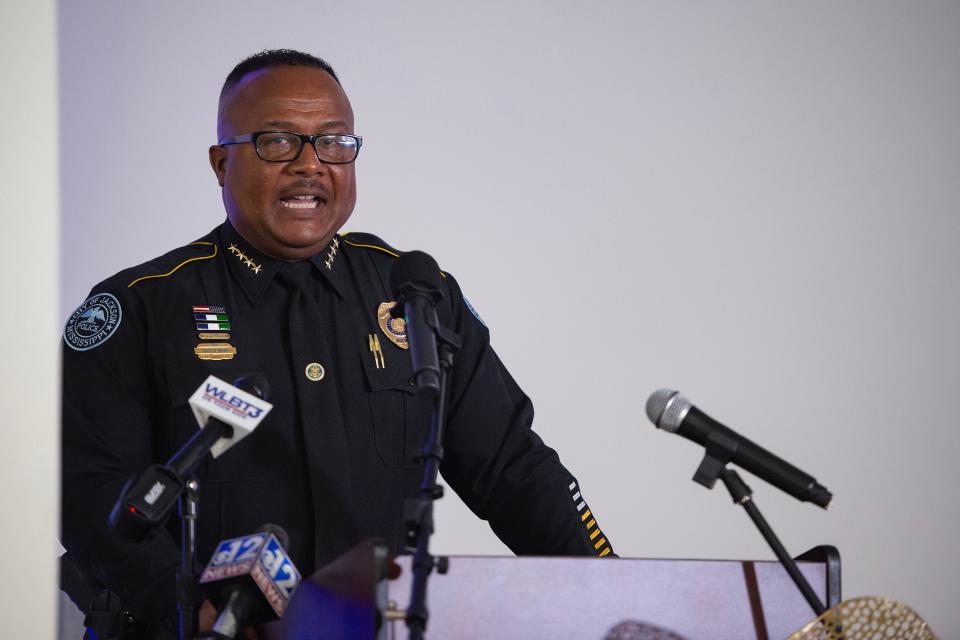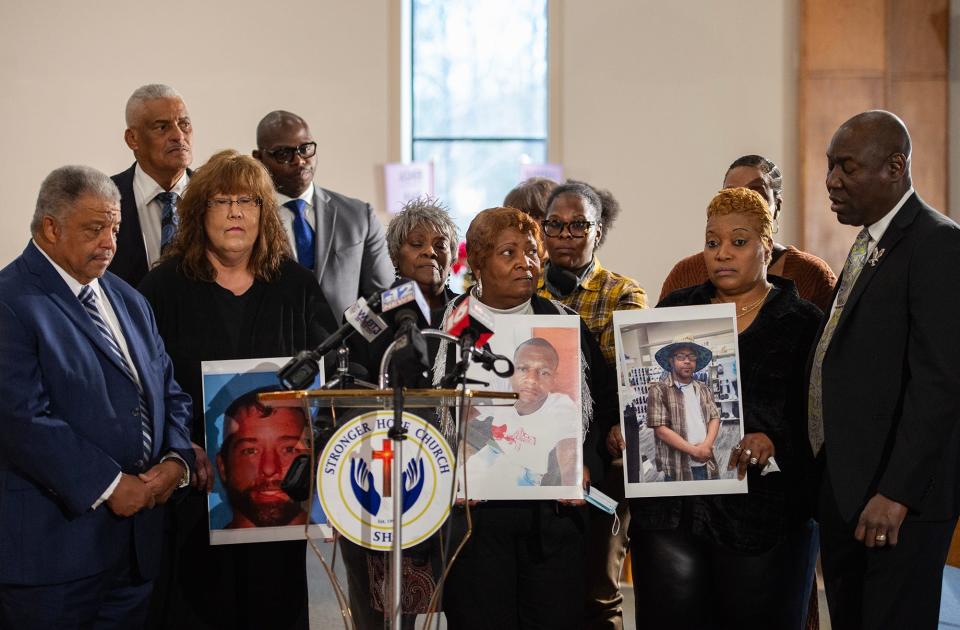JPD never had an official death notification policy until a few weeks ago. What policy says
The issue of death notifications — or lack thereof — by the Jackson Police Department has made national headlines in recent months after multiple families said the department never reached out to them about the deaths of their loved ones.
In early November, Chief Joseph Wade announced the creation of a new death notification policy for the JPD. At the time, he did not give any details of the new policy, only that the department has never had an official death notification policy before.
The Clarion Ledger submitted a Freedom of Information Act and retrieved the documents outlining the new policy.

Policy was created weeks after the case of Dexter Wade
The new policy was announced weeks after JPD made national headlines in the case of Dexter Wade, who was struck and killed by an off-duty JPD officer on March 5. His mother, Bettersten Wade, filed a missing-persons report days after Dexter was killed, but she wasn't notified that he had been killed until October. He had been buried in an unmarked grave at a Hinds County penal farm after his body went unclaimed.
Since then, two more families also discovered their loved one was buried in the penal farm without ever being notified by JPD or the Hinds County Coroner's office. Civil Rights Attorney Ben Crump has taken on the case and called for the U.S. Department of Justice to conduct an investigation. He recently said more families with loved ones missing may be joining the case once the identities of all those buried at the farm have been verified.
Death notification failures: Attorney Ben Crump representing families of 3 men buried in a pauper's grave. What they said
"It is certainly suspicious … that they (JPD) did not contact her. We don't know what happened in the accident, but it would have been better to know on March 5," Crump previously said. "We would have a little more trust, you would have a little more credibility than six months later."

JPD Public Information Officer Sam Brown said the Dexter Wade case, "brought to light that there wasn't a death notification policy in place."
Wade did not respond to multiple requests for comment for this story. The Hinds County Coroner's Office also could not be reached.
Before, Brown said death notifications were "common practice."
"It was a normal practice in the event of a death, but as far as I know it was not a policy," Brown said. "A lot of things are practiced, but he (Joseph Wade) just solidified the policy so there is something written down on paper, a procedure as to how it goes."
Brown also said that once a body has been turned over to the Hinds County Coroner's Office, it is the coroner's office's responsibility to notify the families. JPD and the coroner's office try to coordinate with each other about notifications. Brown said, "I'm sure it has" when asked if JPD's new death notification policy has been shared with the coroner's office.
"We share the responsibility of notifying next of kin … We kind of work lock-and-step with the coroner's office," he said.
Lumumba speaks on Dexter Wade: Mayor's State of the City speech shifts focus to Jackson man killed by off-duty JPD officer
In mid-December, three homicides occurred in 24-hours in Jackson. Brown said each one of those families have been notified.
The new policy
23-1974 Death Notice Policy JPD by USA TODAY Network on Scribd
According to the documents, the purpose of the policy is to "ensure prompt notification" to the adult next of kin and/or a significant other in all cases JPD handles.
All 261 officers, as well as new incoming officers, at JPD have been trained on the policy, he said.
Officers will identify a next-of-kin priority list when making a notification. Once an individual has been identified as the person standing highest in order of priority, no one else should be contacted. Officers should not move on "to the next individual in terms of priority" until "every effort to locate the prior individual" has been made.
Once the officer established the next of kin, notifications should be made as soon as possible. Notifications should be made in person if possible, not by telephone or written correspondence.
If the next of kin or significant other does not reside within JPD's jurisdiction, a request for the appropriate law enforcement agency must be made. The officer should provide the outside agency with all details available, request the notification be made as quickly as possible and also request immediate verification once it has been completed.
JPD dispatcher shortages: Jackson's 911 call volume is higher than other places in MS. See details
Each unit within JPD shall be in charge of making notifications, whether it be the "Crimes Against Persons Unit" or "Accident Investigations Unit."
Officers should deliver the notification "in a slow, calm manner and proceed" and "exercise extreme tact and a direct approach." Details regarding the cause of death, particularly in violent cases, accidents or murder should not be discussed at the time of notification, this should be left to a physician or medical examiner to discuss later.
"Officers should display a demeanor of understanding and sympathy and express a desire to assist," the document states.
More procedures for a death notification:
Efforts to locate and notify the next of kin or significant other will be made as soon as possible.
Officers will gather and verify essential details surrounding the deceased, including their full name, age, gender, home address, location, nature and time of death and the location of the body.
It's recommended that officers do not perform the death notification alone, but instead have an accompanying officer or member of the coroner's office assisting them.
If the notification is made alone, the officer should offer to assist the next of kin in contacting a relative or a close friend.
Officers should ask to be permitted inside the person's home to make the notification because of the "very personal and private" nature of the information, as well as to assist in any medical or psychological problems the next of kin or significant other may have.
Officers will document the notification in their police report to include the date, time, location and the name of the person who was notified. The relation of the person to the deceased should also be included in the report.
This article originally appeared on Mississippi Clarion Ledger: JPD starts death notification policy. Clarion Ledger has details
